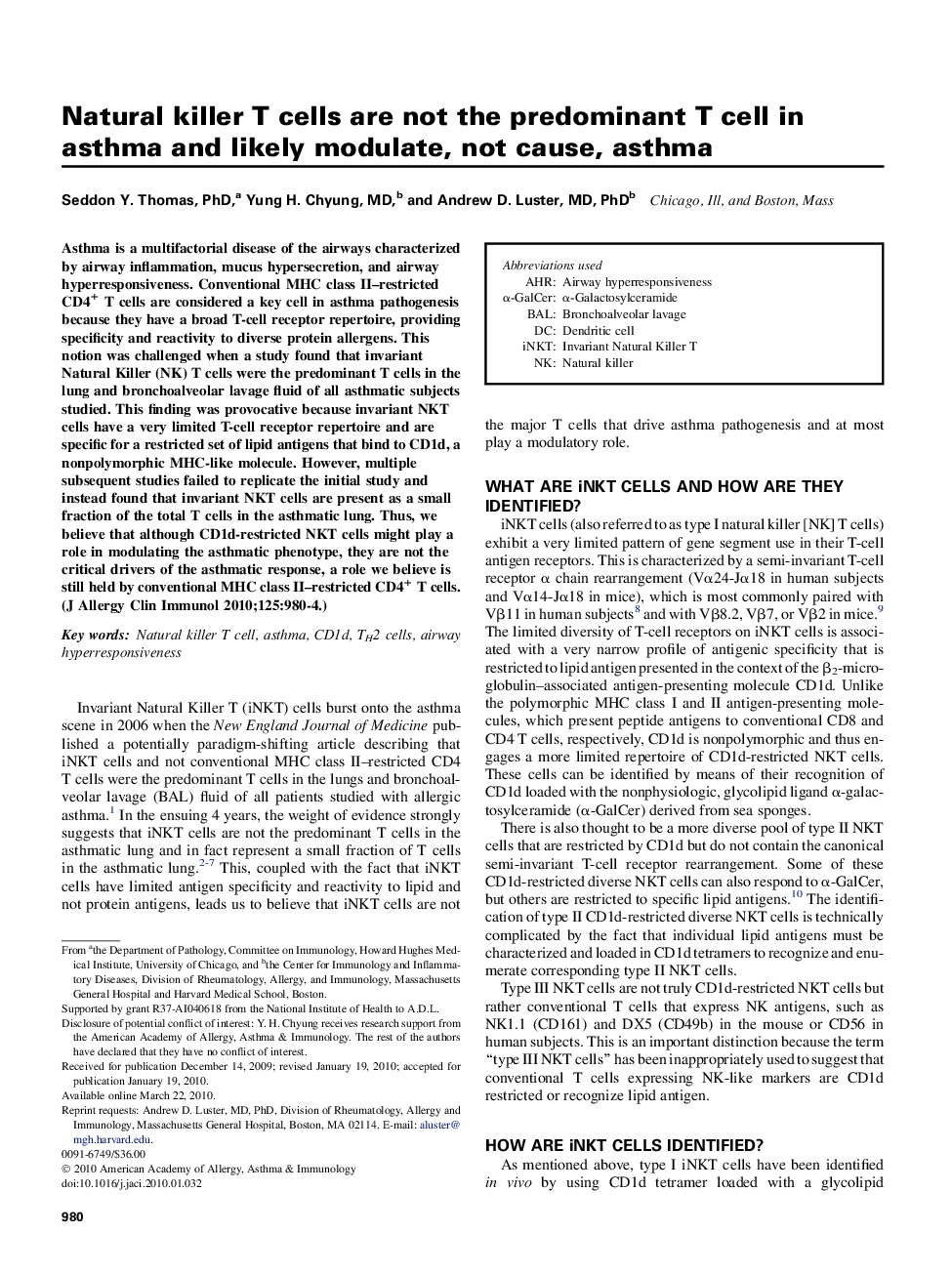| Article ID | Journal | Published Year | Pages | File Type |
|---|---|---|---|---|
| 3200801 | Journal of Allergy and Clinical Immunology | 2010 | 5 Pages |
Asthma is a multifactorial disease of the airways characterized by airway inflammation, mucus hypersecretion, and airway hyperresponsiveness. Conventional MHC class II–restricted CD4+ T cells are considered a key cell in asthma pathogenesis because they have a broad T-cell receptor repertoire, providing specificity and reactivity to diverse protein allergens. This notion was challenged when a study found that invariant Natural Killer (NK) T cells were the predominant T cells in the lung and bronchoalveolar lavage fluid of all asthmatic subjects studied. This finding was provocative because invariant NKT cells have a very limited T-cell receptor repertoire and are specific for a restricted set of lipid antigens that bind to CD1d, a nonpolymorphic MHC-like molecule. However, multiple subsequent studies failed to replicate the initial study and instead found that invariant NKT cells are present as a small fraction of the total T cells in the asthmatic lung. Thus, we believe that although CD1d-restricted NKT cells might play a role in modulating the asthmatic phenotype, they are not the critical drivers of the asthmatic response, a role we believe is still held by conventional MHC class II–restricted CD4+ T cells.
